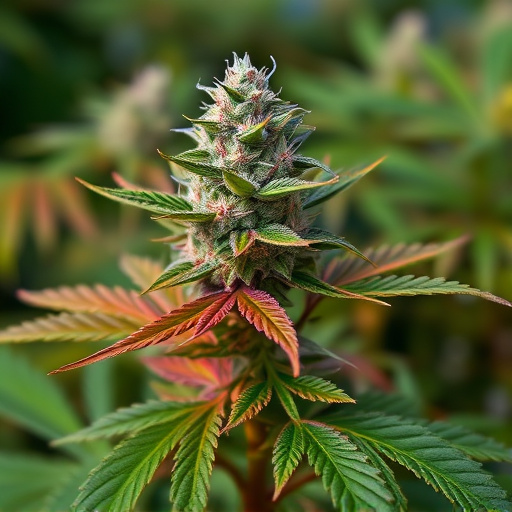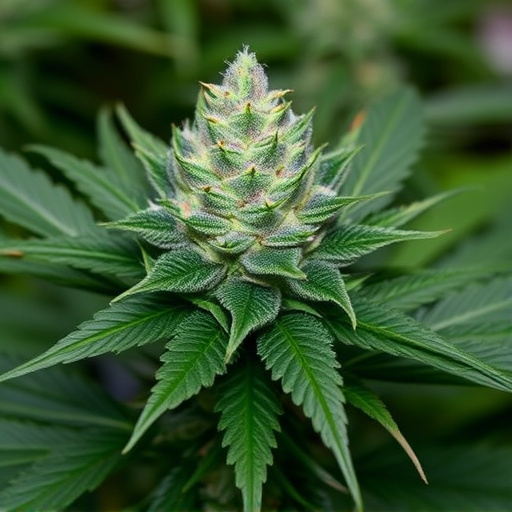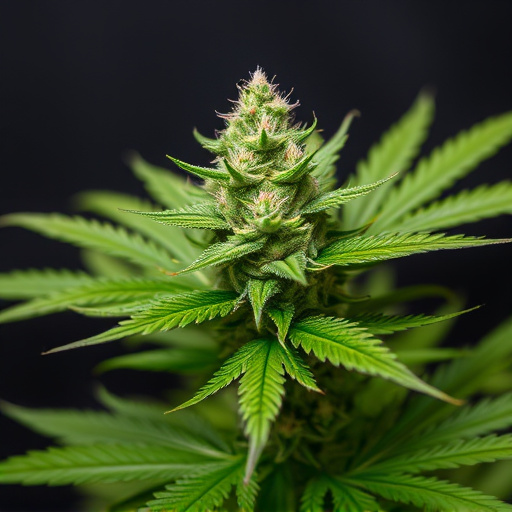The genetics and terpene profile of medicinal cannabis strains are crucial factors in their quality, therapeutic benefits, and effectiveness. Each strain has a unique genetic makeup that influences its visual traits, aroma, flavor, and treatment potential. Terpenes, contributing to cannabis' scent and taste, interact with cannabinoids to produce the entourage effect, enhancing or modifying their effects. Understanding these genetic and chemical interactions is vital for cultivators aiming to produce high-quality medicinal cannabis strains tailored to specific patient needs, while consumers can make informed choices based on desired effects and health benefits.
Discover the key factors that elevate quality in medicinal cannabis strains. From genetics and terpene profiles that dictate aroma, flavor, and potential therapeutic benefits, to cultivation practices and environment influencing plant health and yield—each step matters. Learn how optimal harvesting, curing, and processing techniques ensure peak potency and flavor preservation. Explore these essential elements for cultivating top-tier medicinal cannabis strains.
- Genetics and Terpene Profile
- – The role of genetic lineage in determining quality
- – Impact of terpenes on aroma, flavor, and potential therapeutic effects
Genetics and Terpene Profile

The genetics and terpene profile of a medicinal cannabis strain are key determinants of its quality. Genetic diversity within a plant population ensures a wide range of potential therapeutic benefits, as different genotypes may express unique chemical compositions. Each genetic lineage brings its own set of cannabinoids and terpenes, which combine to create specific effects on the body and mind. Terpenes, aromatic compounds responsible for cannabis’ distinct aromas and flavors, also play a crucial role in its medicinal properties. They interact synergistically with cannabinoids, enhancing or modulating their effects, an interaction often referred to as the entourage effect. Understanding these genetic and chemical interactions is essential for cultivators aiming to produce high-quality medicinal cannabis strains tailored to specific patient needs.
– The role of genetic lineage in determining quality

The genetic lineage of a plant plays a pivotal role in determining its quality, especially in the realm of medicinal cannabis strains. Each strain has unique genetic makeup, which influences its appearance, aroma, flavor, and most importantly, its therapeutic properties. Understanding these genetic variations is crucial when sourcing high-quality medicinal cannabis. Farmers and cultivators carefully select and breed strains based on their desired effects, ensuring that each plant inherits the best characteristics from its ancestors.
Medicial cannabis strains with a proven track record for specific conditions often rely on specific genetic lineages. For example, Indica strains are renowned for their calming and relaxing effects, making them popular for managing anxiety and insomnia. In contrast, Sativa strains tend to evoke a more energizing and uplifting sensation, beneficial for treating depression and fatigue. Thus, the genetic lineage acts as a guiding compass, helping patients find the most suitable medicinal cannabis strain for their individual needs.
– Impact of terpenes on aroma, flavor, and potential therapeutic effects

Terpenes play a pivotal role in shaping the unique aroma, flavor, and potential therapeutic attributes of medicinal cannabis strains. These aromatic compounds, produced by both plants and some microorganisms, contribute to the distinct characteristics that make each strain distinctive. The complex interplay between terpenes and cannabinoids is what researchers refer to as the “entourage effect,” enhancing the overall experience and effects of consuming cannabis.
Different terpenes offer diverse sensory experiences and potential health benefits. For instance, myrcene is known for its earthy, musky scent and is often associated with inducing relaxation and pain relief. Limonene, on the other hand, imparts a citrusy aroma and has been linked to uplifting moods and potentially aiding in stress reduction. Pinene provides a piney fragrance and may offer anti-inflammatory properties. Understanding the terpene profile of medicinal cannabis strains allows consumers to make informed choices based on their desired effects, be it relaxation, energy boost, or specific therapeutic benefits.
In conclusion, the quality of medicinal cannabis strains is a multifaceted consideration, with genetics and terpene profile playing pivotal roles. Understanding these factors allows consumers to make informed choices, ensuring they access the best possible treatments tailored to their needs. By appreciating the intricate interplay between genetic lineage and terpenes, we can navigate the diverse landscape of medicinal cannabis, ultimately fostering a more effective and enjoyable experience.














